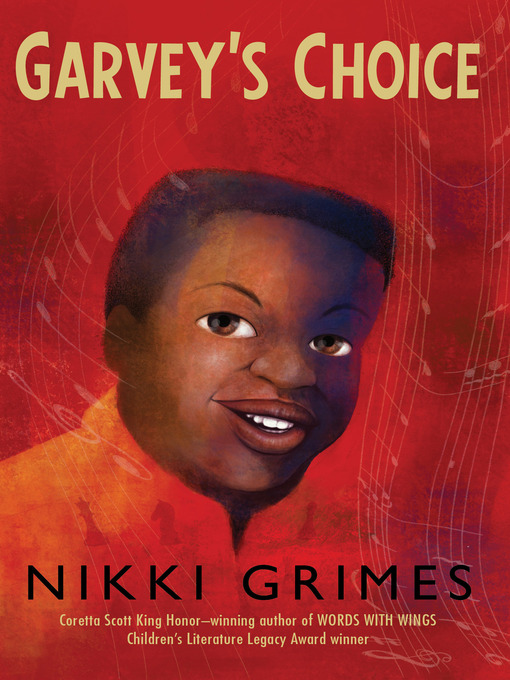Review by Booklist Review
Garvey, who lives with his parents and older sister, tries to stay on track despite the arrival of COVID-19 in their Southern California community. Mom is learning to conduct her classes from home, while Dad works long hours installing Wi-Fi, leaving no time to spend with his son. With schools closed, pandemic restrictions in place, and news reports of police killing Black people, Garvey is disturbed on many levels. Talking with his sister helps, especially when their father falls ill and seems to be failing. Garvey, who used music to forge a better relationship with Dad in Garvey's Choice (2016), finds a way to connect with him once again. Written in sequences of five-line tanka poems, a haiku-like form, this verse novel transports readers back to the early pandemic months through Garvey's experiences. The poems vividly express his thoughts and emotions as he, his family, and his friends deal with unwanted changes in their lives as well as the underlying dread of COVID-19. This engaging sequel will resonate with many readers.
From Booklist, Copyright (c) American Library Association. Used with permission.
Review by School Library Journal Review
Gr 4--8--Garvey found his voice in Garvey's Choice, his singing so splendid his father "once said./ "Your voice could wake/ the dead." Shippy returns to narrate prodigious poet Grimes's companion title, again written in modern tanka, as Garvey faces 2020's COVID-19 lockdown. Schools close, activities are cancelled, shopping devolves into a toilet-paper-grabbing stampede. Garvey's mother must adjust to teaching on screen, as Garvey and older sister Angie endure virtual learning. Only Dad is allowed to leave, until the "Invisible Beast" makes him a dangerous prisoner in his own house. Outside, racist violence continues to kill--"Breonna Taylor,/ George Floyd, and way too/ many others." Garvey must reclaim his inspiring voice: for family, justice, himself. Shippy consistently imbues Garvey with deliberate determination, confronting frustration and fear amidst unprecedented uncertainty. VERDICT A pandemic novel might seem premature, but Garvey's authenticity should resonate broadly with youthful audiences.
(c) Copyright Library Journals LLC, a wholly owned subsidiary of Media Source, Inc. No redistribution permitted.
Review by Kirkus Book Review
The protagonist of Garvey's Choice (2016) faces world-altering challenges. In Grimes' earlier book, Garvey, a young Black boy, found his courageous voice in the school chorus and connected with his sports-obsessed father. Relying again on the poetic form of tanka, this elegant verse novel sees Garvey and his family seeking to push through the maelstrom of life in 2020. Not only is Covid-19 sweeping the world ("The Invisible Beast," as Garvey terms it), things are exacerbated by the continued presence of anti-Black violence as global communities lift up in protest the names of George Floyd and Breonna Taylor. School is now driven by laptop cameras and screen time. Everyone is home now except for Dad, whose work installing Wi-Fi may expose him to threats that the entire family must take seriously. The stress builds, affecting everyone. The public outlets that Garvey discovered to fuel his happiness just aren't available to him like before, when things were "normal." Grimes conveys many of the elements specific to Black life in 2020, focusing on how families adapted to Covid, not knowing whether a lasting resolution would arrive. Though this story feels a little rushed compared with the first installment, it nevertheless tackles themes of family, friendship, grief, and coping with injustice and will inspire dialogue about this chaotic period as well as a sense of hope and healing. A way for young people to reflect on a troubled time. (note about tanka) (Verse novel. 8-13) Copyright (c) Kirkus Reviews, used with permission.
Copyright (c) Kirkus Reviews, used with permission.

